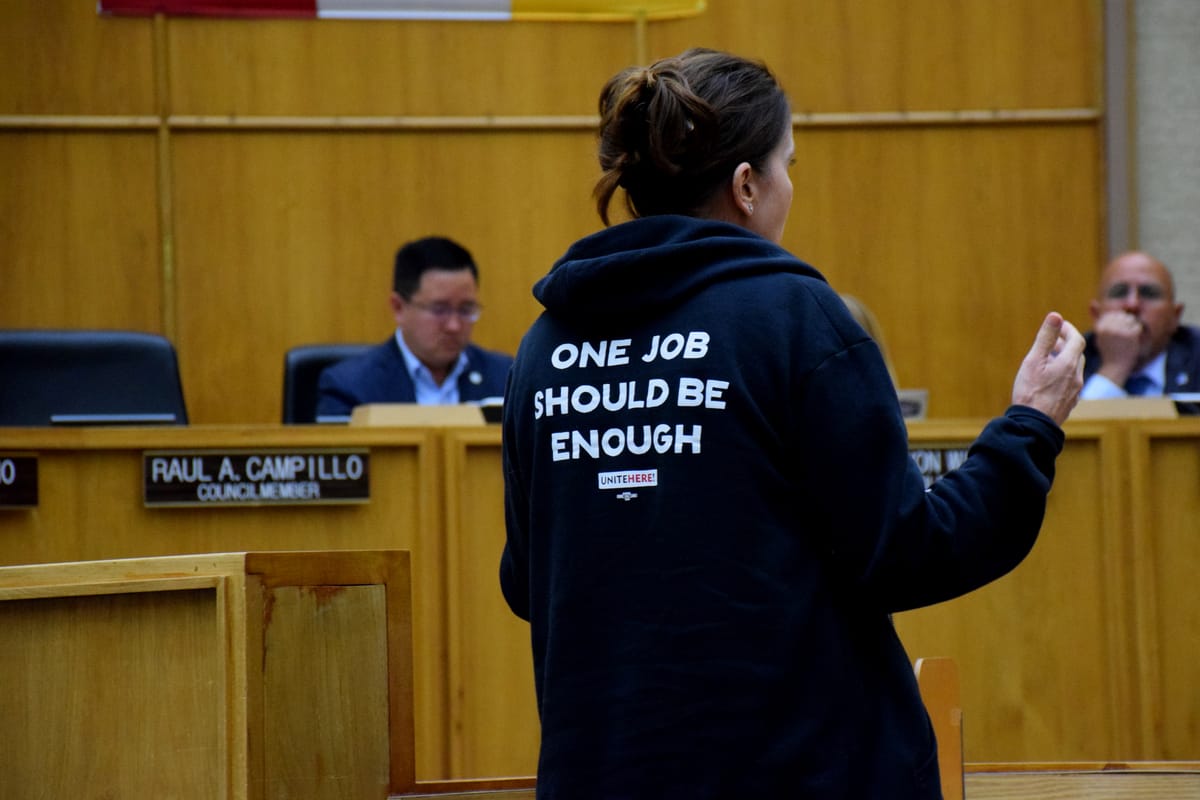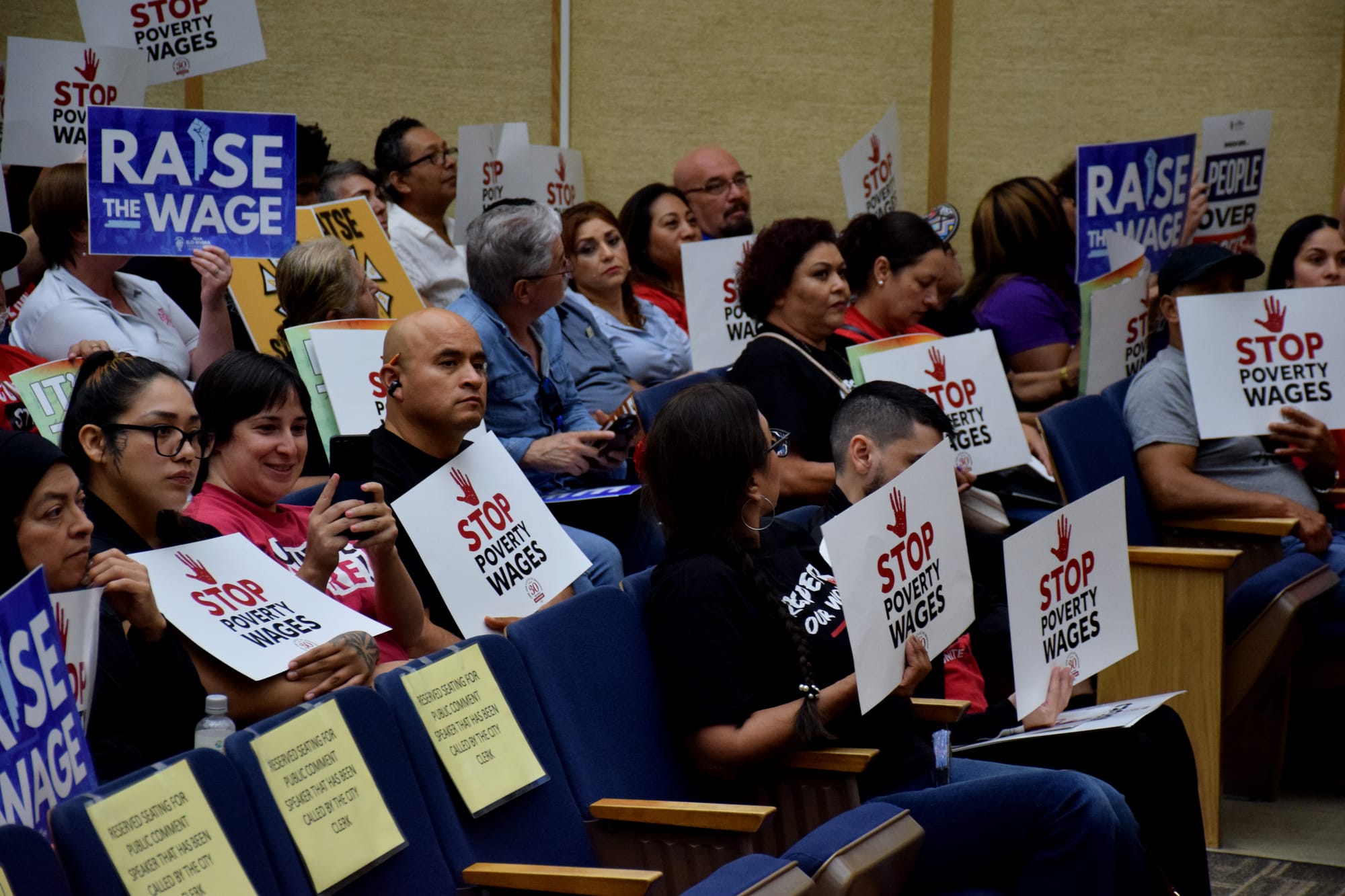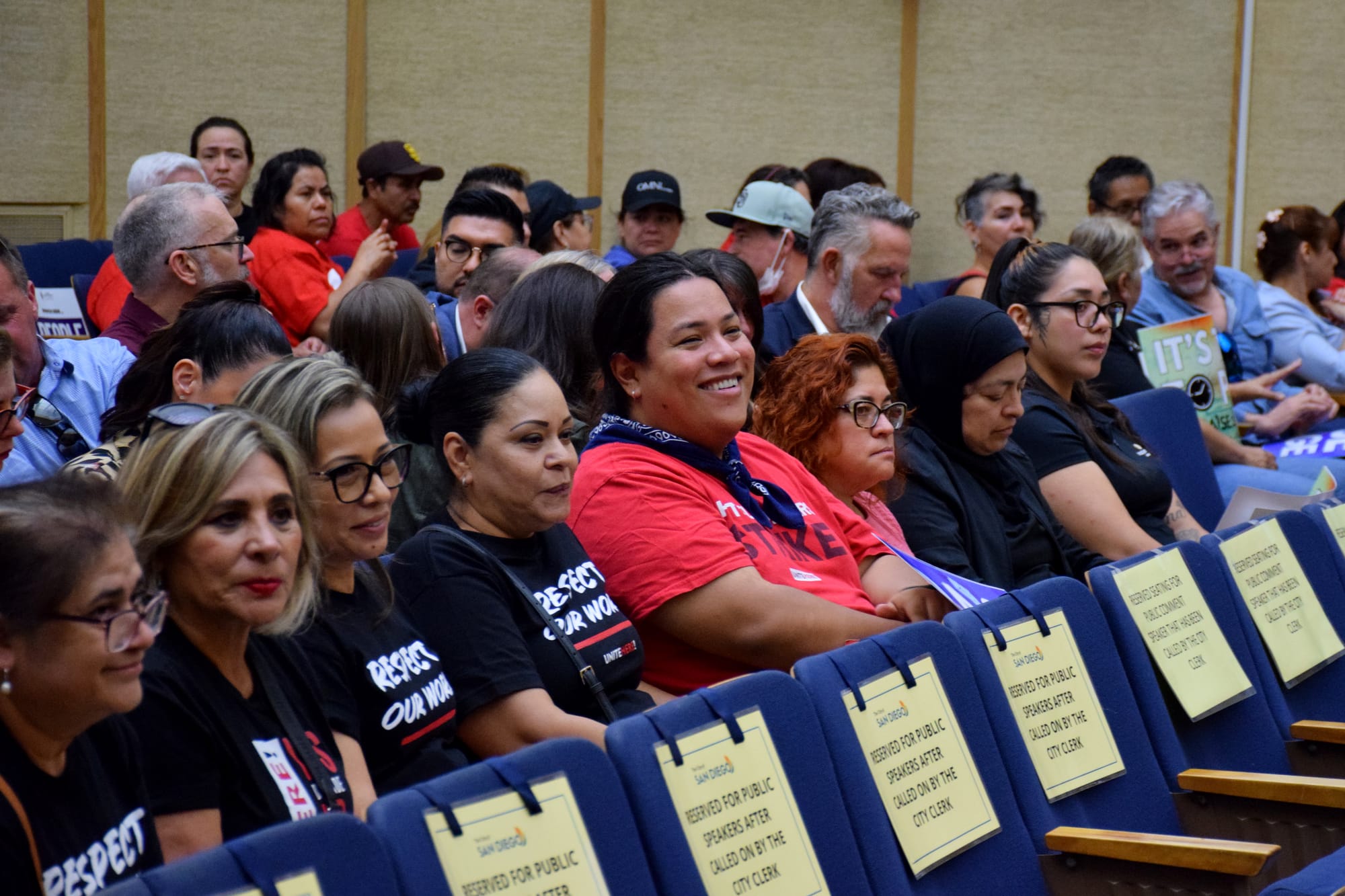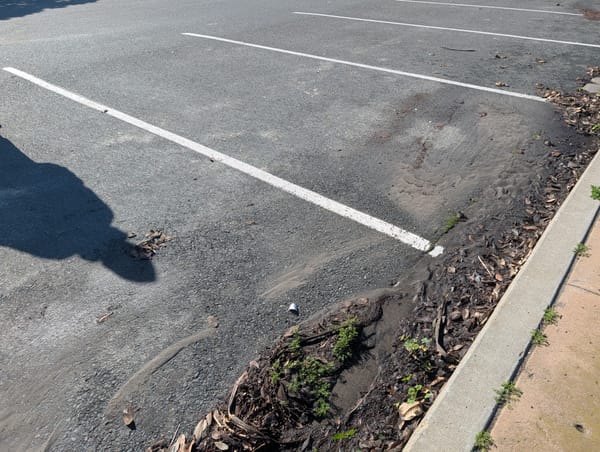San Diego tourism workers score wage hike in City Council vote

After more than a year of research and development, the San Diego City Council unanimously approved an ordinance to raise minimum wage to $25 an hour by 2030.
Written by Lauren J. Mapp, Edited by Kate Morrissey
The San Diego City Council unanimously approved a $25 minimum wage increase for hospitality workers during its Tuesday meeting.
The wage bump will apply to those working at or contracted by hotels with 150 rooms or more, as well as amusement parks and event centers, which includes the Civic Theatre, Pechanga Arena San Diego, Petco Park and the San Diego Convention Center.
The minimum will gradually increase over four years to $25 an hour starting next July, when event center staff will be paid a minimum of $21.06 an hour, and hotel and amusement park staff will be paid a minimum of $19 an hour.
City staff have worked on the minimum wage plan, championed by Councilmember Sean Elo-Rivera, for more than a year.
In 2024, more than 32 million visitors traveled to San Diego and spent a record $14.6 billion locally, according to the San Diego Tourism Authority. At 73%, the county ranked fourth nationally for average hotel occupancy rate.
Maya Rosas, deputy chief of staff for Elo-Rivera, said that while national politics and economic uncertainty have slowed tourism in some regions, San Diego has been largely insulated because nearly 50 million people live within driving distance to the county from Arizona, southern Nevada and other parts of Southern California.
“Travel and tourism performance held up really well here in San Diego,” she said. “That's because we have that immense number of people who, instead of going to Hawaii or Asia or Australia, will say, ‘You know what, let's stay closer to home.’”

More than 90 people spoke during public comments on Tuesday, many of whom were union employees and hospitality workers. Some workers shared that they couldn’t afford to live in the city or have an apartment of their own based on their current pay rates.
Jordan Sullivan, a 20-year Encore employee who said he already makes more than $25 an hour, described colleagues who despite having college degrees are living paycheck-to-paycheck with their parents. He said it’s especially egregious given that Stephen Schwarzman — the CEO of Encore’s parent company — has a net worth of $56 billion, according to Forbes.
“This is about money. It's about power. They want to hold power over their workers at any cost,” Sullivan said. “They're willing to spend thousands of dollars opposing this measure when they could just be paying workers what they're worth.”
During the public comment period, Center on Policy Initiatives researcher and policy advocate Chad "CJ" Valasek said that in a survey conducted in partnership with the UC San Diego Labor Center, he heard about myriad financial struggles from hospitality workers in the region who couldn’t afford to live near their jobs.
The researchers surveyed 74 hospitality workers and conducted nine in-depth interviews.
One worker who had been in the industry for 20 years said they had to live with their parents because they still couldn’t afford their own apartment. Another said co-workers sometimes slept outside after their shifts because they couldn’t pay for a ride share to get home.
“In one of the wealthiest cities in the country, people serving visitors to ‘America's Finest City’ are sleeping in cars, staying on couches or worse because their jobs do not pay enough to keep them stably housed,” Valasek said.

One Local 30 union member — Cristobal Rosas — told Daylight San Diego he currently works five jobs as a bartender and hotel beverage captain to cover the high cost of living and raising a family in San Diego. He said the bump in pay means he could cover the costs of sports activities for his kids, and that it would relieve some stress.
“I'm not saying that what they pay is not fair, I just think that it can always be better,” he said. “We are a tourist city that brings a lot of people in, and I think that if the wages go up a little higher, it won't take a lot from [the hotel owners], and they should be able to [pay] that to us.”
Speakers opposing the city ordinance, primarily representing business owners and hotel management, said increasing pay for staff would mean hiring fewer people to keep rates competitive with hotels in other local cities.
Deneda Young-Carrick, director of sales and marketing at Paradise Point Resort & Spa in Mission Bay, said that while hotel operators value staff and “the hard work they put in every day to create memorable experiences with our guests,” the industry is already taking hits to its profitability.
“We are facing significant increases in the cost of goods, supplies, insurance and ongoing investments on our properties,” she said. “These pressures are mounting just as we are seeing conferences canceled, a slowdown in both international and domestic travel and real impacts beginning to take place right here in San Diego.”
Brick Hospitality Chairman Bob Rauch said the two hotels he operates in the city are already using some automated services to lower costs, like vacuuming robots.
“If this proposal is approved, kiosk check-in, automated food prep, AI-powered voice and chat bots will end up replacing people to stay competitive,” he said.
But Local 30 President Brigette Browning balked at the threat to tourism jobs during her public comment. Hotels are already automating services like check-in — including through apps like Marriott Bonvoy and Hilton Honors — to avoid paying more for staff, she said.
“They're threatening workers that if you dare to want to have a wage that you can survive on, we're going to get rid of you,” Browning said. “That's the message that they're sending today, and I just want to say that is completely unacceptable.”






